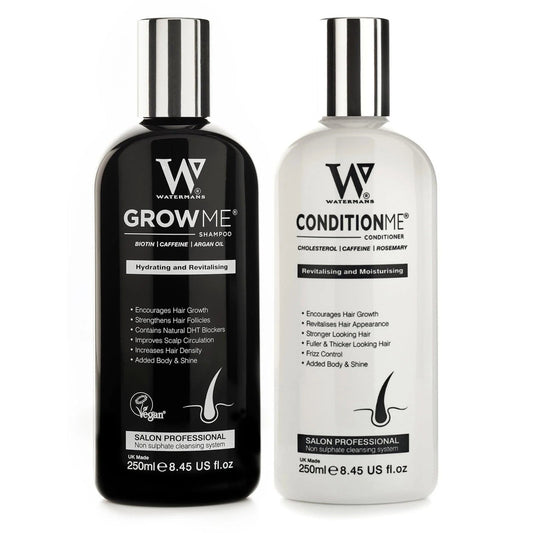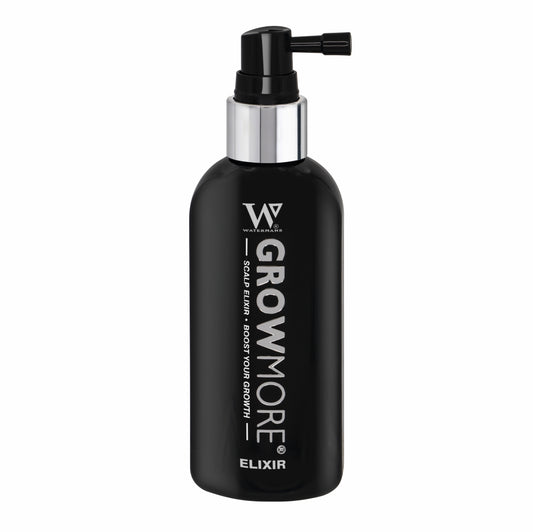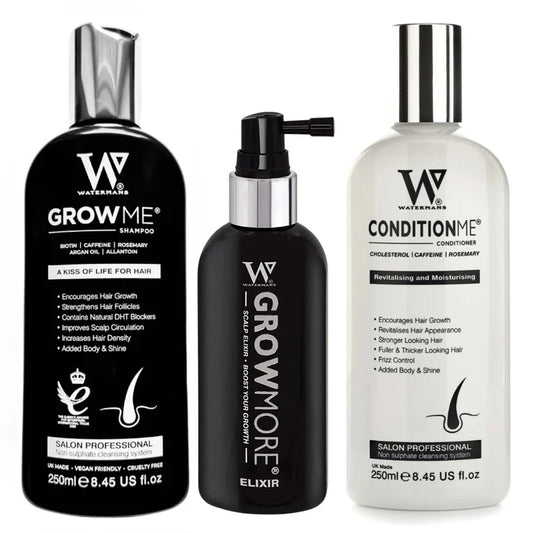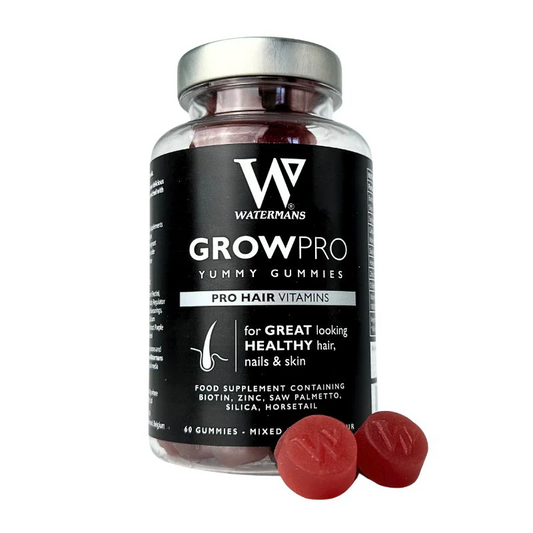Mastering Anticoagulants: A Comprehensive Guide to Understanding Blood Thinners for Healthier Living
Share

Anticoagulant Medications: Mastering Blood Thinners for Healthier Living
Anticoagulant medications, often known as blood thinners, play a crucial role in preventing blood clots that can lead to serious health issues such as stroke, heart attack, and deep vein thrombosis. Understanding how these medications work, their benefits, potential side effects, and appropriate usage is vital for anyone who needs them or wants to learn more about managing clot-related conditions.
In this comprehensive guide, we’ll explore everything you need to know about anticoagulant medications — from how they function within the body to the latest natural approaches to support vascular health, including innovative options like Watermans Grow Me Shampoo for revitalizing your overall wellbeing by improving hair and scalp health during medication use.
What Are Anticoagulant Medications?
Anticoagulants are a class of drugs that reduce blood clotting. They do not actually thin the blood but interfere with the clotting process, preventing harmful clots from forming or growing larger. Common types include:
- Warfarin (Coumadin)
- Heparin
- Direct Oral Anticoagulants (DOACs) such as apixaban (Eliquis), rivaroxaban (Xarelto)
These medications are commonly prescribed to patients with atrial fibrillation, prosthetic heart valves, or those who have had recent surgery or trauma to prevent clots.
How Do Anticoagulants Work?
Your blood contains proteins called clotting factors that help form clots when you are injured. Anticoagulants work by disrupting these proteins to slow or stop the clotting process. The mechanisms vary:
- Warfarin blocks Vitamin K, which is needed for clotting factor production.
- Heparin enhances antithrombin III, a natural clot-inhibiting protein.
- DOACs directly inhibit specific clotting enzymes, such as thrombin or factor Xa.
This targeted action helps to maintain blood flow, reduce risks of dangerous clots, and avoid stroke or pulmonary embolism.
Why Are Anticoagulants Important?
Blood clots are essential for healing injuries but can become dangerous when they form inside blood vessels without injury.
Conditions requiring anticoagulants include:
- Atrial fibrillation (irregular heartbeat)
- Deep vein thrombosis (DVT)
- Pulmonary embolism (PE)
- Mechanical heart valve replacement
- Stroke prevention
By preventing abnormal clots, anticoagulants significantly lower the risk of complications that can be life-threatening.
Types of Anticoagulants and Their Usage
1. Warfarin
- Requires regular blood tests (INR monitoring)
- Affects diet (Vitamin K intake impacts effectiveness)
- May interact with many other medicines
2. Heparin
- Usually given by injection in hospitals
- Provides fast-acting anticoagulation for short-term use
3. Direct Oral Anticoagulants (DOACs)
- Taken orally once or twice daily
- Require less monitoring than Warfarin
- Includes drugs like apixaban, rivaroxaban, and dabigatran
What Are the Side Effects?
Like all medications, anticoagulants can cause side effects. The most common concern is increased bleeding risk, because the blood’s ability to clot is reduced.
Possible side effects include:
- Easy bruising
- Nosebleeds
- Bleeding gums
- Heavy menstrual bleeding
- Dangerous internal bleeding (rare)
Close medical supervision and correct dosing are essential to minimize these risks.
Lifestyle Tips for People on Blood Thinners
Managing your lifestyle while on anticoagulants is key to safe and effective treatment.
- Keep a consistent diet: Especially consistent Vitamin K intake for Warfarin users.
- Avoid injury: Be cautious during physical activities that may cause cuts or bruises.
- Inform all healthcare providers: Always inform doctors and dentists about your anticoagulant therapy.
- Avoid other blood thinners: Such as aspirin or NSAIDs, unless specifically instructed.
Natural Approaches to Support Blood Health
Supporting your health while on anticoagulants includes caring for your skin and scalp. Hair health can suffer with changes in blood flow and medication side effects. Using natural solutions like Watermans Grow Me Shampoo may help energise your scalp and volumise hair from the roots.
Key Ingredients:
- Biotin
- Rosemary
- Caffeine
- Niacinamide
- Argan Oil
- Allantoin
- Lupin Protein
These ingredients support scalp circulation and strengthen hair follicles, potentially improving hair growth and quality, which is beneficial during medication therapy.
Interactions Between Anticoagulants and Hair Care Products
Certain hair and scalp products contain ingredients that might interact with medications or cause sensitivity. While anticoagulants don’t typically interact with topical treatments, it’s best to choose gentle, natural shampoos without harsh chemicals to avoid irritation.
Try using shampoos like Watermans Grow Me Shampoo which is designed with natural, nourishing ingredients ideal for sensitive scalps, helping you maintain healthy hair without interference.
Monitoring and Adjustments: Working Closely With Your Healthcare Provider
Because anticoagulants affect blood clotting so directly, ongoing monitoring with your doctor is essential. Regular blood tests check how well the medication is working and adjust doses to reduce unwanted side effects.
Open communication and prompt reporting of any unusual bleeding or bruising are critical for safe anticoagulation therapy.
Tips for Recognizing and Responding to Bleeding Emergencies
On anticoagulants, even a minor injury can become serious if bleeding doesn’t stop:
- Apply pressure to bleeding areas
- Seek immediate medical help if bleeding is heavy or doesn’t stop
- Watch for symptoms like dizziness or weakness, which may indicate internal bleeding
Frequently Asked Questions About Anticoagulant Medications
Q1: Can I eat green leafy vegetables while taking anticoagulants?
A: If you are on Warfarin, consistency is key. Green leafy vegetables contain vitamin K, so it’s important not to drastically change your intake without consulting your doctor.
Q2: How quickly do anticoagulants work?
A: Heparin works quickly, within hours, while Warfarin takes several days to reach full effect.
Q3: Can Anticoagulants make my hair fall out?
A: Hair thinning is not a common side effect but some patients report hair loss. Using nourishing shampoos like Watermans Grow Me Shampoo can help maintain scalp health.
Q4: Are there natural alternatives to anticoagulants?
A: Natural blood thinners (like garlic, ginger) exist but they are not a replacement for prescribed anticoagulants. Consult your healthcare provider before making any changes.
Q5: Can I drink alcohol while on blood thinners?
A: Alcohol can increase bleeding risk, so moderation and medical advice are important.
Q6: How long will I need to take anticoagulants?
A: Duration depends on your condition, the reason for anticoagulation, and your doctor’s assessment.
Q7: Are DOACs safer than Warfarin?
A: DOACs require less monitoring and have fewer food interactions, but not everyone is a candidate and Warfarin remains preferred in certain situations.
Q8: Should I inform dentists or surgeons about my anticoagulant therapy?
A: Absolutely. This is critical before any procedure to manage bleeding risks.
Q9: What are signs of dangerous bleeding on anticoagulants?
A: Blood in urine or stool, coughing up blood, severe headache, weakness, or vomiting blood require urgent medical care.
Q10: Can I stop taking anticoagulants suddenly?
A: Never stop without your doctor’s guidance as this can increase clot risk.
Did You Know? Important Facts About Anticoagulants
- Did you know that Warfarin was originally developed as a rat poison before becoming a life-saving medicine for humans?
- Did you know that caffeine, an ingredient in Watermans Grow Me Shampoo, helps stimulate the scalp and may support healthy hair growth?
- Did you know that lifestyle changes like regular gentle exercise can improve circulation and support your body while on anticoagulant therapy?
- Did you know that consistent communication with your healthcare provider helps tailor your medication to lower side effects and improve effectiveness?
- Did you know natural solutions to hair and scalp care, such as products with biotin and argan oil, support overall wellbeing during anticoagulation treatment?
Anticoagulant medications are a powerful tool for maintaining health and preventing dangerous clot-related conditions. Combined with diligent medical care, appropriate lifestyle habits, and supportive natural products like Watermans Grow Me Shampoo, you can live a balanced life with optimal health and confidence.



